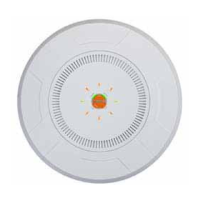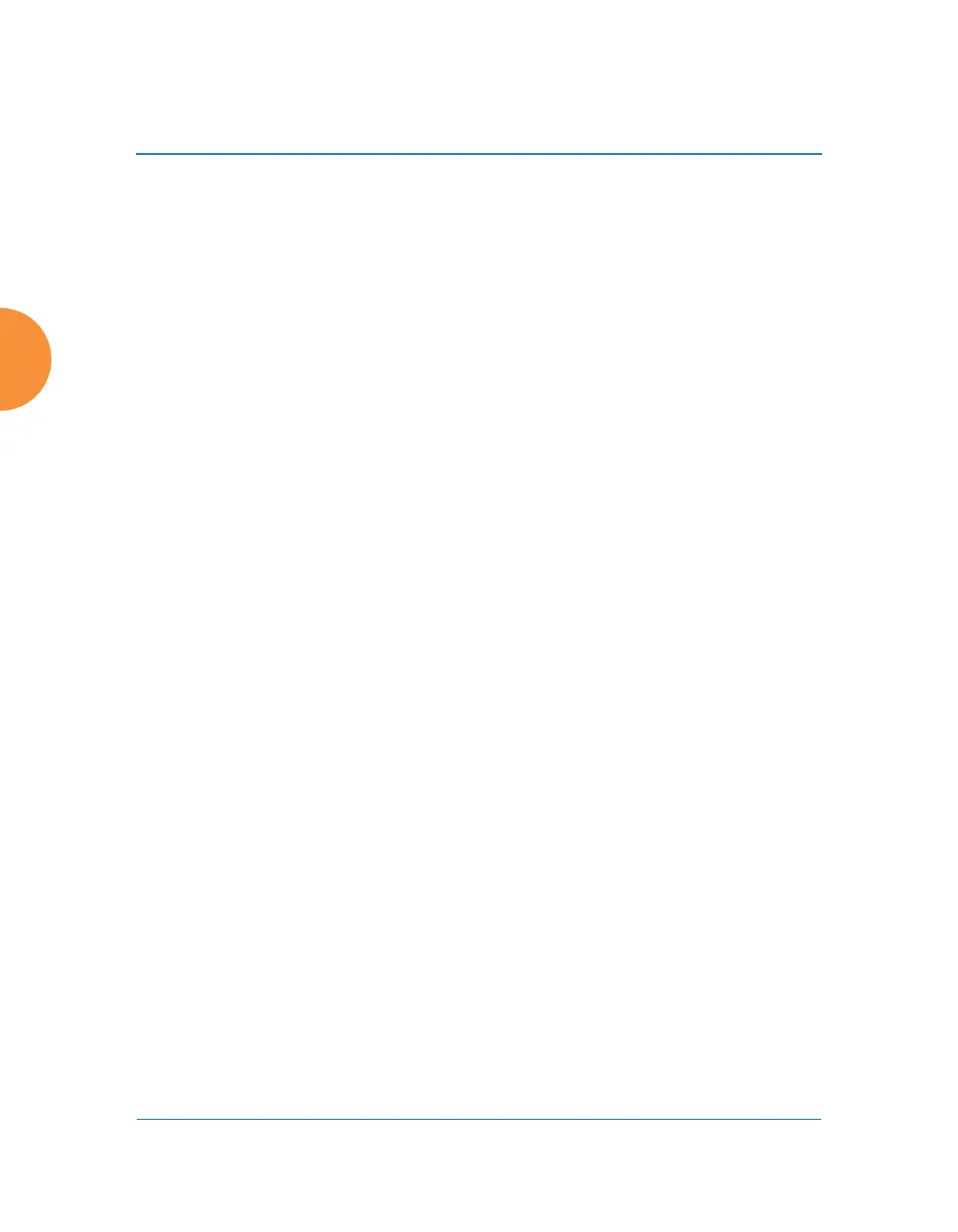Wireless Access Point
396 Configuring the Wireless AP
13. QoS: (Optional) Set packets ingressing from the wired network that
match the filter criteria to this QoS level (0 to 3) before sending them out
on the wireless network. Select the level from the pull-down list. Level 0
has the lowest priority; level 3 has the highest priority. By default, this
field is blank and the filter does not modify QoS level. See
“Understanding QoS Priority on the Wireless AP” on page 270.
14. VLAN/Number: (Optional) Set packets that match the filter criteria to
this VLAN. Select a VLAN from the pull-down list, or select numeric and
enter the number of a previously defined VLAN (see “VLANs” on
page 213).
15. Traffic Limit: Instead of simply allowing the specified traffic type, you
may cap the amount of traffic allowed that matches this filter. First choose
the units for the limit: kbps for all stations in total or per station, or
packets per second (pps) for all stations in total or per station. Then enter
the numeric limit in the field to the left.
16. Scheduled Time: shows the times at which this filter is active, if you have
established a schedule in Step 19.
17. Move Up/Down: The filters are applied in the order in which they are
displayed in the list, with filters on the top applied first. To change an
entry’s position in the list, just click its Up or Down button.
18. To delete a filter, click its Delete button.
Select an existing filter entry in the list to view or modify Scheduling or Address
Configuration, shown below the list of filters:
19. Scheduling: Use these fields if you wish to specify a scheduled time for
this filter to be active. Check the checkboxes for the days that the filter is
to be active. By default, the filter is active all day on each selected day.
You may also specify a time of day for the filter to be active by entering a
Start and Stop time in 24:00 hour format (i.e., 6:30 PM is 18:30). To use
this feature, you must enter both a Start and a Stop time.
You cannot apply one filter for two or more scheduled periods, but you
can create two filters to achieve that. For example, one filter could deny

